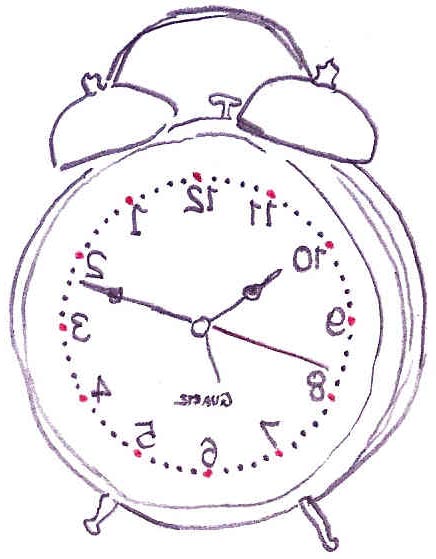
Apr 18, 2021
I’ve seen two situations in the retirement area where people are stuck. One is the transition into retirement when someone holds back from initiating the process. The second is post-retirement when the transition has not worked out very well. The retiree is not happy but doesn’t know how to make retirement better.
First, consider Ray, a successful consultant, whose work is helping key executives in some major US corporations with their business planning. He knows that, if he wants, he can continue working, as he has been for many more years.
Ray has been thinking about retiring for a long time. He feels burdened by the stresses of work more and more, and he has enough money to retire. So why doesn’t he retire? He doesn’t know what he would do with his time. He’s thought about some home projects and travel, but they don’t seem enough. Why give up his exciting work? Retiring to him seems like jumping off a cliff – into an abyss.
Then there’s Eddy, who ran a small but successful publishing firm. He got an offer to buy his business that was too good to turn down. He took the offer. He looked forward to a retirement life of golf, travel, and visiting grandchildren. Eddy’s retirement started out great. He’s now two years into it. He enjoys his activities, but he feels like there’s a hole in his life. He’s not sure how to fill it.
Both Ray and Eddy are stuck and upset with themselves. They want some change but don’t know how to do it. They know that they’re smart and should be able to figure out what’s next. But it hasn’t happened. It feels like a fog has settled over their heads. And they see other less capable people who seem to have figured this all out and are having a great time.
Ray and Eddy have been through many transitions in their pasts, including into new jobs or careers. Some may have been more straightforward than others. Some transitions they did by themselves, others they got some help from teachers or coaches.
Ray and Eddy will remain stuck unless and until they do something different. If they’re not making much progress on their own, then they could get some help from professionals.
In my new profession of retirement coach, I work with people like Eddy and Ray to help with these very issues. My goal is to help make the transition into retirement much easier and result in a higher quality retirement.
Are you stuck in your retirement transition?

Apr 6, 2021
Starting at around age 50 we begin to think not only how old we are, but how much time we have left. Our life expectancies from birth are to age 75-80, which translates to an age 65 retirement length of 10– 15 years. However, if you’ve made it into your mid 60’s, your average life expectancy will actually be into your late 80’s. So, you could have 20 – 25 years of retirement.
Even that’s not the whole story. If you’re managing your health reasonably well and have the resources to get good healthcare, then your life expectancy is even greater, and your retirement could be even longer.
If you could count on having all of that time available, with mental clarity and good health, then decisions you make about what you want to do with your time would be far easier. But there is no warranty stamp. There’s substantial uncertainty. I’ve witnessed some friends dying and others recovering, both unexpectedly.
I retired late, because I was enjoying my work and didn’t want to quit. But I eventually did. When I was no longer working full-time, I had to decide how to use my “extra” time. Yes, I had a bucket list comprised primarily of travel destinations. Should I rush through it and travel while I still could, before being overcome by health issues?
That thinking motivated me to plan and do some very nice trips, before Covid-19 limited the possibilities. I realized, however, that I would never complete my list of travel destinations. I hear of new places from fellow travelers, frequently. I’ll never run out. And I want to return to some of my favorites. So I’ve chosen a fast but not desperate pace of travel.
In addition to travel I’ve chosen two long-term retirement activities – starting a new career as a retirement coach and learning cello. I knew that each of these would take considerable time to develop into serious ventures.
- My new retirement coaching career has turned out to be more different from my previous financial planning than I expected. I find that I’m often going out of my comfort zone and learning new skills and bodies of knowledge. It’s challenging. My goal is to have a substantial positive impact on others through the part-time work I do. It’s working.
- I loved listening to cello for decades before I decided to play it. I started my lessons a few years before retirement, knowing that it could take a minimum of 5 years before I would be good enough to play in an ensemble group. I find the learning to be frustrating and joyful. I’ve found out that this is also the experience of other musicians. Playing cello is something significant in my life.
Health issues could slow me down or stop me from continuing to make progress. So far, I’m okay. I love learning and making progress. I hope to continue having a major impact on the lives of others. Each day now is full and rich. I’m spending my time doing things that are important to me.
How much time do you think you have left? How do you plan to use it?

Mar 30, 2021
This is the first of a series of blogs I am writing about Retirement Strategies. My goal for this series is to give you information and ideas to facilitate your transition to a joyful and fulfilling retirement.
Retiring means transitioning from full-time work to something else. For many people that means moving to a life of leisure, if they can afford to do that.
Some workers retire because they want to do something else. Others are forced to leave the workforce by their employer or to deal with health issues for themselves or others. If the time of retiring is your choice, then you might use the criterion of having enough money to last throughout retirement as your triggering event. There are other issues and challenges for you to deal with, particularly those that deal with your activities during retirement.
Most people don’t fully appreciate that their work provides more than an earned income and benefits. When work disappears, here are some of other losses.
- When you leave work, they don’t come with you. That social interaction is gone.
- Structure of your time. Most people in their retirement are excited to have more freedom and flexibility. But many, who are not used to structuring their own time, find it to be challenging when days merge into each other without some kind of routine or focus.
- Work is organized around meeting goals. The sense of achieving them disappears upon retirement unless replaced with something else.
- Are you still a doctor (or lawyer etc.) when you are no longer practicing your profession?
If any of these losses are important to you, then you will want to replace them. Here are some ideas based in part on my own experiences when I retired in 2019.
- You may need to make new friends or activate older relationships. Doing activities that you love together with others is one way to accomplish that. I reached out to others through social media, zoom, and volunteer activites to meet new people and get together with old friends.
- Structure of your time. It is helpful to have some activities in retirement, daily, weekly or whatever. I’ve structured my time via cello lessons and practicing for them, along with a number of regular other activities.
- Having a sense of achievement. If you have some goals in retirement, making substantial progress or finishing them will give you a sense of accomplishment. I have a sense of achievement through building my new retirement coaching career and making progress on my cello.
- One solution is to continue some work into retirement in the same professional area. Another is to create a new identity that will give you the same respect that you had while working. For me I’ve replaced my work identity as a financial planner with an accreditation as a retirement coach.
All of these parts of the retirement transition require some thought and planning.
Do you have some ideas for replacing important features of your work when you retire?

Mar 23, 2021
Through the years I’ve had many wonderful personal relationships and conversations with family and friends. It’s clear to me what makes those conversations great – the people are terrific listeners. They encourage me to share my emotions and fears, support or challenge me when appropriate, and talk from their heads and hearts. And they share what’s going on with them.
It’s only very recently that I realized that there is another type of conversation that I also particularly enjoy. It is a connection to how I operate in the world.
More than 20 years ago I read the book Discover Your Strengths by Marcus Buckingham. Buckingham’s research through the Gallup organization asserts that we all have core strengths that affect how we operate. Those strengths span a lifetime. When we use them, we’re happy and productive.
I did the strengths assessment a couple of times and learned that my three core strengths are Ideation, Strategic and Learner. It should come as no surprise to anyone who knows me that I love new ideas and learning and figuring out how to apply them in a strategic manner.
In my past careers of chemistry, biology, computers, and financial planning, I loved reading and applying what I had learned to solving the puzzles that I came across. Now, even though I’m retired, I still have the same strengths. My new career of retirement coaching gives me another opportunity to collect ideas and develop strategies, this time for those preparing for a successful retirement.
I know that my particular core strengths apply to me and few others. Two types of conversations don’t work very well for me, and now I understand why. One is where I feel lectured at, where the speaker is a terrible listener. The other I label as trivial – the topics include weather, gossip about people I don’t know or a discussion about movies I’m not interested in seeing. Those conversations are neither ones from the heart nor are they interesting to me from an information / strategy viewpoint.
What kinds of conversations are great for you and how do they relate to your own core strengths?

Mar 16, 2021
I’ve had my vaccine shots, and my life is slowly starting to change. On the plus side, I went shopping a few times last week, and we had someone from our building over to share a pizza. But we’re still living with restrictions. We wear masks, don’t eat at indoor restaurants, and aren’t traveling anywhere.
It still feels like the end of Covid is coming. I don’t know when and how my life will be different from what it is now. I made my adjustments a year ago, and now it’s time to make some more.
Change and uncertainty are always there. I’m a planner, and I refuse to be immobilized. Right now, I’m in the early stages of formulating a plan. I’ll use three steps in my planning process:
- Figuring out what I want to accomplish. I find it easy to generate ideas. Right now, I’m in my brainstorming mode – the more ideas the better. Soon I’ll start to winnow them down. For my filter I’ll use my core values. My values include helping others, thinking things through, improving continuously, and exploring. When I’m done with this phase, I’ll have developed my objectives and goals.
- Considering several alternative approaches. Next, I have to figure out how I’m going to accomplish these goals. An important part of this step is to identify partners to help me with tasks that will be difficult for me on my own.
- Getting started. I’ll set some specific goals and map out some of the first steps. Then I’ll take some very small actions to get started.
I find that planning my next steps helps me in two significant ways:
- Most important, it gives me a sense of control over my life. That permits me to have a more intentional and fulfilling retirement life.
- The planning helps me to focus on what’s really important for me and then make some progress towards the fulfilling life that I’m looking for.
I realize that I can do my planning at any time. The end of Covid is a particularly good time to do more planning, because there will be many changes happening, and I want to adapt.
In fact, planning can smooth any transition that you’re expecting to make.
What are your post-Covid plans?

Mar 9, 2021
I learned long ago, partly through participation in Marriage Encounter, that a good marriage takes work. Otherwise, entropy wins – things fall apart. I have always wanted my marriage to grow and become even better.
When my wife wants me to do something, generally I do what she asks, unless there’s a reason not to. She does the same for me.
The concept of an emotional bank account (EBA) for our marriage is a powerful idea. I can make deposits to it or take withdrawals from it.
Examples of deposits include listening to what is important to her, doing my share of responsibilities on time and without a fuss, helping her with her work, and making the time to do fun things together. In fact, I try to more than meet her expectations but to exceed them. I don’t attach a score to any of this – I just focus on making deposits.
Sometimes I need to take withdrawals from my EBA. It could be because I want or need something from her, even if it isn’t convenient for her. Or, not being perfect, I do something that is stupid, inappropriate, or hurtful. If the balance in my EBA is high enough, I may have a “get out of jail free” card. Having a large positive balance in my EBA helps us to weather any storms that arise.
I have other EBAs. They are for relationships with family and friends that I really care about. I invest the time, energy, and other resources to build and maintain them.
What relationships do you have that merit an emotional bank account?






